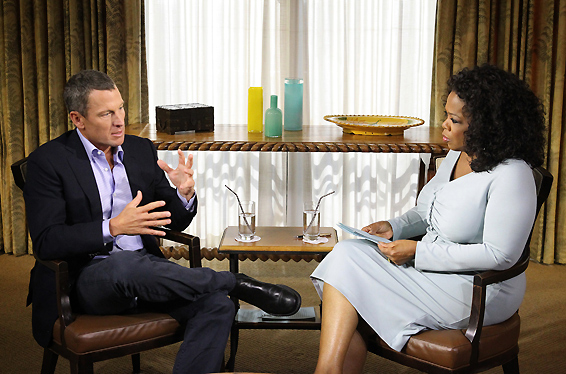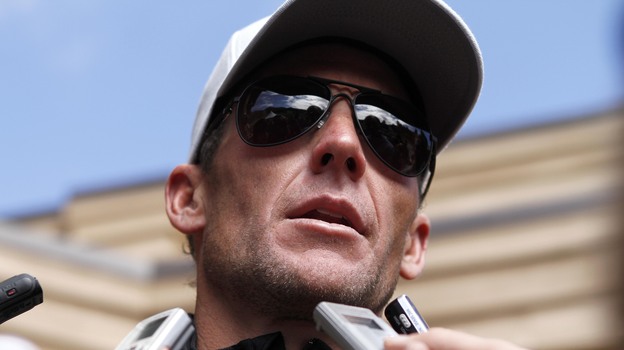電影
羅伯特·德尼羅訪談:這傢伙不只是表演
報道 2013年01月30日

Alex Prager for The New York Times
對我們這一代人而言,羅伯特·德尼羅(Robert De
Niro)理所當然是他那一代人中最優秀的電影演員。20世紀70年代和80年代初沉迷於電影的青少年,必定會在他們易受影響的年齡階段,實時目睹德尼羅
那些將會受到膜拜的不朽之作。“這傢伙不只是表演——他演得出神入化,”波琳·凱爾(Pauline Kael)在評論《窮街陋巷》(Mean
Streets)時說。這倒不是說德尼羅演得很空靈,很抽象,而是他每一次扮演新角色時,都把自己轉化成了那個角色——無論是在肢體上、說話方式上,還是
心理上。而且在這個過程中,德尼羅重建了表演藝術——就在我們的眼前。
曾經有一段時間,德尼羅似乎無處不在,每一部電影中都以一個新的形象出現。我有這樣的印象,可能是因為我追看電影的時候恰逢他演藝生涯中一個鼎盛 期,而且當時也是音像店以及播放經典老片的影院雙雙蓬勃發展的黃金時代。無論如何,我都記得——而且仍然珍視——他在很多影片中的表演,比如伊利亞·卡贊 (Elia Kazan)的改編影片《最後的大亨》(The Last Tycoon),貝納多·貝托魯奇(Bernardo Bertolucci)導演的《1900》(1900),還有《巴西》(Brazil),《喜劇之王》(The King of Comedy),《紐約,紐約》(New York, New York)……至少還有十幾部電影,我在這裡就不再一一列舉,考驗讀者的耐心了。
不過我得承認,在不久前的一個星期六的下午,當我採訪德尼羅時,為了避免像激動的粉絲一樣報出他最著名的電影角色,從而浪費我和他在一起的寶貴時
間,我用盡了我全部的專業自制力。哦,我的上帝,你是傑克·拉莫塔(Jake LaMotta)!你是約翰尼·波依(Johnny
Boy)!你是特拉維斯·比克爾(Travis Bickle)!我在跟你說話。
但是,對於年輕的一代觀眾來說,他最出名的角色是傑克·伯恩斯(Jack Byrnes)——《拜見岳父大人》(Fockers)系列中本·斯蒂勒(Ben Stiller)的那位難以取悅的岳父。就像一系列動作片和犯罪片中可靠的正劇角色一樣,他的一些喜劇角色(但不是全部)也非常好。說德尼羅的巔峰期已經 過去會顯得很時髦,但懷舊是一種壞習慣,縱觀過去40年的電影史,你會發現德尼羅從未懈怠,減少拍片,或是隱退過,而是年復一年地參與電影拍攝,至始至終 保持認真的態度和對細節的關注。
所以我們不要把德尼羅的新電影,《烏雲背後的幸福線》(Silver Linings Playbook),稱作是復出或重振旗鼓。他一直都在拍戲,大多數時候處於最佳狀態。《烏雲背後的幸福線》改編自馬修·奎克(Matthew Quick)的同名小說,由大衛·O·羅素(David O. Russell)導演;這是一部天馬行空的喜劇片,相當特別——德尼羅仍然扮演一位難以取悅付的父親,但不羈、有趣、感人。這個角色名叫老帕特·索里塔諾 (Pat Solitano Sr.),是費城老鷹隊的狂熱球迷,由於自己的反覆無常和兒子(布萊德利·庫珀[Bradley Cooper]扮演)不穩定的情緒,他的家庭和睦之夢難以實現。
在表現令人不安的沉默和平靜的威懾力方面,德尼羅是無以倫比的大師,但老帕特·索里塔諾這個角色提醒我們,他也可以是機敏的喜劇演員和喋喋不休的話 嘮。當然,那是指在屏幕上。記者圈裡流傳的說法是,他有時極端沉默,而且不太喜歡作為名人接受採訪。在德尼羅位於翠貝卡的辦公室里,我採訪了他。在非工作 期間,影星們通常會在記者面前表現得輕鬆隨和,但德尼羅沒有擺出這種默認姿態。他坐在真皮大座椅里,腳踩着地板,雙手平放在扶手上,對我提出的問題,他並 不總是迅速或輕鬆地給出回答。這情形就像是在工作。
為什麼不該是這樣呢?德尼羅的表演方式十分明顯地體現在他出演過的將近百部電影中,其中沒有一個方面會讓任何人指望他給出滑頭的評論或現成的答案, 那不是我尋求的東西,我也不想窺見“真實的”特拉維斯·比克爾、傑克·伯恩斯、老帕特·索里塔諾或是他扮演過的任何其他角色。但是我想知道他們來自何方, 或者更準確地說,他們是如何成型的。我在尋找線索,在追逐出神入化,我對“跟一個演員談他的工作”這項工作感興趣。
問:我們就從《烏雲背後的幸福線》以及你跟大衛·羅素的合作談起吧。這次合作是怎麼開始的呢?
答:我以前認識大衛,看過他拍的一兩部電影。後來我看了他拍的《鬥士》(The Fighter),覺得非常棒。然後就有了這次合作,我不記得自己在讀劇本之前是否讀過原著小說——但無論怎樣,大衛顯然做了改動。小說很有趣,這個角色 也很有趣,但跟大衛電影里的人物正好相反。
問:怎麼會這樣呢?
答:他更加——在書中,這個角色非常沉默寡言,總是待在自己的房間里。他仍然是狂熱的球迷,但他總是回到自己的房間里,不會再出來。這是一個很出彩的角色,只不過跟電影中完全不一樣。我演的角色反過來了——或者說是翻轉過來了。
問:這部電影的一個精彩之處,就是你跟雅基·韋弗(Jacki Weaver)和布萊德利·庫珀在一塊兒時,家裡那種節奏,那種混亂的感覺。就是感覺,在任何時候,事情都可能朝任何方向發展;可能是有趣的方向,也可能是可怕的方向。
答:大衛的導演風格很不尋常。攝像機在你周圍四處移動,他會把攝像機推向這個角色,推向那個角色。他會說幾句台詞給你聽,然後讓你重複,我不介意這 種拍攝方式,我覺得這樣很好。這是一種獨特的工作方式,直接了當,自然不刻意,你必須跟着感覺走。大衛很了解整個混亂狀況。這是他的瘋狂 (meshugas)的一個方面——我不想用meshugas這個詞,但也許就是這樣。他有那種瘋狂,但是瘋得很可愛。
問:我把這個角色和你近來在其他一些電影中扮演的角色做了個比較,似乎你最近扮演的角色中有好幾個都是父親。
答:我以後還會扮演祖父,如果我運氣好,還能站得起來的話,我還會演曾祖父。
問:看着你在《烏雲背後的幸福線》中演的老帕特·索里塔諾,把他跟你最近在另一部電影《成為弗林》(Being Flynn)中扮演的喬納森·弗林(Jonathan Flynn)做比較,非常有趣。我覺得你的弗林演得很棒,跟老帕特·索里塔諾完全不一樣。
答:這是同一個主題的其中一種情形——主題是父親對某些東西感到後悔。很多父母都是這樣:他們對一些事情感到後悔。如果寫得好,就會很出彩,值得用電影表現出來。
問:當你看到《烏雲背後的幸福線》中老帕特·索里塔諾這個角色時,你想過用哪些具體的方式來表現那種後悔的心情嗎?
答:在《烏雲背後的幸福線》中,我沒有想過——我當時想過一些事情,但我跟自己說,“跟着感覺走就好”。你必須知道你在做什麼,知道你在這些場景中要表現什麼,我在這些方面付出了極大的努力。但與此同時,在拍攝的時候,你也要為各種情況做好準備。
問:顯然你跟很多不同的導演拍過很多電影。你有時候會加入自己對角色的想法嗎?
答:在我參演電影的時候,我就已經決定要跟導演們合作了,所以我們對各自的分工有一種共識。我不會參與冗長繁瑣的角色討論——我們要這樣,還是那 樣,還是怎樣。無論如何,我必須做的事情就是到攝像機前面去把它演出來。導演聘用你、選擇你來扮演這個角色,所以也會尊重你的表演。
問:所以不同的風格不會讓你感到困惑?像大衛·羅素那樣的即興風格呢?
答:我能理解大衛的風格。但如果一個導演讓你演一些傻傻的,你無法共鳴,也無法從任何層面上理解的東西,那就會有問題了。我力圖不讓自己陷入那種境地。
問:你當導演的時候,從另一面來看這件事,又會是怎樣呢?
答:我總覺得,你必須非常、非常——無論演員做什麼,他們都不會犯錯。他們必須有那樣的感覺,才能去嘗試他們想嘗試的任何東西。即使某個想法不正 確,那也沒有關係。也許我們會使用這個想法的某些部分。那沒有關係,按你的想法試一遍,再按我的想法試一遍,然後我們決定下來,或者之後我再決定,哪一種 是最好的。有時你這樣做只是為了讓那個人表達自己的想法。我自己就會這麼做。我會試一遍,把它表達出來,然後我意識到這個想法可能並不正確,但我表達了自 己的想法。
問:在你更年輕的時候,剛開始成名的時候,情況是怎樣的?你跟一些當時同樣年輕的導演合作,比如馬丁·斯科塞斯(Martin Scorsese)和貝納多·貝托魯奇,他們是你的同齡人。
答:我現在歲數大一些了,更有經驗了,所以我不會被導演攪得心煩意亂。這種情況基本上不會發生。這當然不是因為我覺得自己很了不起,而是因為這是常 識。但我年輕的時候,更容易為某些事情感到緊張。在跟貝納多合作時,他有時候會顯得——我覺得他是歐洲人,他們有一些特別的要求。
問:你能舉個例子嗎?
答:在拍《1900》的時候,第一天我們就拍人物老年階段的戲,我覺得這有問題 ——這樣拍行不通,誰也不入戲。當時我身在異國他鄉,和我非常喜歡的這位導演坐在一塊兒,我不記得當時我是怎麼說的了,但大概是說“我們拍到哪兒了?”如 果我多想一下的話,我可能會說,“我們能不能晚一點再拍這場戲,不要在第一天就拍?”我知道做事情不應該這麼混亂無序。但我沒有反對,我記得那件事,那樣 拍確實行不通。
問:斯科塞斯呢,你們合作拍了一些很成功的電影。最開始合作時,你們兩個都還很年輕。回頭來看,魯珀特·帕普金(Rupert Pupkin)和特拉維斯·比克爾之間有一些相同之處,但也有大相徑庭的地方。這些角色讓我看到了之前屏幕上從來沒有出現過的東西——一種對於全新的人物 類型的探索。
答:在拍《喜劇之王》的時候,我想這樣做,馬丁不太願意,但我們還是這樣做了。在我倆合作的時候,有時候會發生這種情況。我這麼做只是為了更好地合作。當時有個劇本——我不知道你是否了解這件事。
問:什麼事?
答:《喜劇之王》的劇本是保羅·齊默爾曼(Paul Zimmerman)寫的,但它還有另一個版本,是巴克·亨利(Buck Henry)寫的。我跟米洛斯·福爾曼(Milos Forman)[已被選定為亨利版本的導演]說:“我真的很喜歡原來那個版本,你不介意我去和馬丁拍那個版本吧?”我記得的情況就是這樣,也可能漏掉了一 些細節。我想拍齊默爾曼的版本。
問:我覺得這個角色是最迷人也是最可怕的人物之一。而且還有一種肢體上的變化,你的很多角色都是——不只是為了演拳擊手而去健身,或者是增加體重這樣的變化,而是姿態、塊頭和身材方面的整體變化,這種轉變對你扮演這些角色有多重要?
答:很重要,肢體非常重要。你的肢體動作會展示角色的整體身份。
問:因為《喜劇之王》和你最有名的那幾類角色之間還是存在很大差別的。
答:說到這個,馬丁、我,以及《喜劇之王》的服裝設計師迪克·布魯諾(Dick Bruno),我們有一天去百老匯——那裡有一家出售百老匯演藝服飾的商店,就在“舞台餐廳”(Stage Deli)附近。店裡有些衣服很花哨,你現在也可以在拉斯維加斯看到那種衣服。這家小店裡有一個人體模型,它穿着西裝,戴着假髮和其他飾物,我們走進去選 衣服,我選了假人的髮型,說它非常合適。馬丁說很好,我們就這麼做。我們就是這麼開始的。
問:回頭來看,我覺得最讓我驚訝的事情之一,就是你一直這樣工作了40年。有個問題我非常好奇,我也問過斯科塞斯,布魯斯·斯普林斯廷(Bruce Springsteen)、梅麗爾·斯特里普(Meryl Streep)、伍迪·艾倫(Woody Allen)同樣的問題:你是如何堅持下來而且保持新鮮感的呢?
答:我喜歡演戲,非常喜歡。尤其是當你變老,開始意識到自己沒有那麼多時間的時候。你回顧過去,說“這15年過得可真快。”你不會懂這種感覺,直到 你到了這個歲數,回顧過去,說:“天啊,這些時間都到哪裡去了?”那時你才真的會懂。我知道我必須認真對待每一天,每一刻,每件事情,但時間仍然在飛逝。 所以現在,如果運氣好的話,我可能還有15年,或者20年的時間可以好好利用,我在考慮怎麼利用它們。
問:你打算導演更多的作品嗎?
答:我很喜歡當導演。我想跟埃里克·羅斯(Eric Roth)一起拍攝《特務風雲》(The Good Shepherd,[德尼羅2006年導演的電影,講述的是中情局的誕生過程])的續集,現在我們正在把這個故事拍成電視劇,所以情況和電影不太一樣。電 視劇讓你有更充裕的時間,把戲拍得更加深入。但我之前的設想不是這樣的,因為這個故事很宏大,可以拍成一部電影。把它拍成電視劇當然我也願意,但我還是更 希望把它拍成一部電影。
問:拍第一部電影的時候感覺困難嗎?
答:我花了很長時間才拍完它,無論如何,籌集資金花了很長時間。這是一場非常、非常艱巨卓絕的戰鬥。我很敬重像馬丁這樣的人,和所有那些只當導演的 人——他們總是在戰鬥,不是為這件事,就是為那件事。每個人都會發表自己的意見,你總得聽取他們的意見,因為他們在你的電影里投了錢。我已經經歷過這種事 了,那是一場真正的戰鬥。有人說:你必須有點黑幫作風才能成事。你必須爭取你想要的東西,你必須聽取每個人的意見,然後在綜合考慮過各種因素後,你必須做 自己覺得正確的事情。
問:人們對電影業的變化議論紛紛,說它變好的也有,說它變壞的也有。你怎麼看呢?
答:動作電影、漫畫改編電影的興起是比較明顯的變化。就其本身來說,這類電影沒有什麼問題。我覺得是從《教父》(The Godfather)第一集和《大白鯊》(Jaws)開始,就有了票房大片的概念,它們為其他方面的變化拉開了序幕,演變成了今天的樣子。
問:你覺得這種變化阻礙了人們拍攝更多的個性化電影嗎?
答:你來回答這個問題可能會比我答得更好。從某些方面來說,很可能是這樣的。拍這樣的電影非常艱苦。要製作電影,你就要跟一家製片廠合作,由他們來 做發行工作,你從其他地方籌集到資金,然後把這些資金用在各個方面。我記得當年,如果你給製片廠拍電影,你負責拍好就行了。但現在你要打理很多事情。你要 去籌集資金,籌到資金之後,你還得尋找發行方——這讓人很惱火。
問:對演員和導演來說都是同樣困難嗎?
答:導演手頭變得更緊了,你需要在預算更緊的情況下拍戲。所以,我前面說過,為了能按自己的想法拍戲,馬丁每次都必須戰鬥,我非常尊重他。你要克服困難,無論你採取什麼樣的方法,有些時候你必須堅持自己的立場,有些時候你又必須讓步。但永遠不要做出你無法忍受的讓步。
問:很多人說,上世紀70年代才是個性化電影大行其道的年代。
答:每個人都這樣說,但我不這樣看。我們能夠拍攝那些電影,也籌到了拍攝資金,是因為我們運氣好。我覺得從某些方面來說,現在拍的個性化電影更多,演員的機會也更多。
問:你跟影評人的關係如何?你怎麼看他們對你的評價?
答:我想說的是,如果沒有影評人——即使他們可能讓你惱火,讓你心煩——如果沒有影評人,誰來告訴你拍得好不好呢?其他人是不會跟你說實話的。你拍 了一部電影,放給別人看,觀眾或者朋友永遠不會說不喜歡,因為他們站在你這一邊,他們知道你拍得很辛苦,因此他們一定會給出積極的評價。所以,真實的反饋 其實來自於影評人,尤其是優秀的影評人。
問:你從這些影評中了解到什麼東西了嗎?
答:是的,大約四年前,我讀到一篇影評,說的是我和帕西諾(Pacino)拍的一部電影,我們演兩個警察。影評人說我看上去像是腫起來了。我說他們沒看錯。我笑了起來。但那是我故意的,我增加了體重,因為那個角色是一名警察。這事兒很有趣。
問:你有沒有看過你以前的作品呢?
答:我一直想看——從我的第一部電影一直看到最近的一部。
問:有些演員們不這樣想,吉恩·哈克曼(Gene Hackman)就說過,一旦電影拍完,他就不想回頭再看了。
答:這個我能理解,我也有過這種感覺,但這取決於具體是哪部電影。
問:在拍攝過程中看樣片呢?
答:有些導演不希望演員看樣片,因為覺得這會讓演員緊張,其實他們不知道演員——其實事情不是那樣的。讓演員看樣片是一件好事。如果你看看監視器上 的回放,你可以清楚地看到你演得怎麼樣,哪些不是你想要的效果,你是不是得做一些調整。導演跟我說:“看看這個。”你馬上就會明白需要做些什麼調整。不過 我不喜歡看樣片。我會說:“只要告訴我你想要我怎麼做就行了,我相信你的判斷。”但是看樣片沒有任何壞處,只會對我有幫助。
問:你這樣想是因為現在經驗更加豐富了嗎?在演藝生涯的早期,情況是不是不一樣?
答:一樣的,我總是會看樣片。現在看得少一些了,但如果我想看,總是可以看得到。如果你看樣片,你就看到一些可以改進的地方,這樣你就不會每次都犯同樣的錯誤。就是這樣。
問:在回顧你的演藝生涯時,我發現你拍的喜劇片比我預想的多——我想人們可能有點低估了你的喜劇才能。但在《拜見岳父大人》這樣的電影中看到你時,我很想知道你演喜劇片的方式跟演劇情片是否有什麼不同。因為就拿《拜見岳父大人》來說,你演的角色顯然很拿自己當回事。
答:是的,表演的過程是不同的。有些時候,我喜歡演更微妙、更細緻、更複雜、更矛盾的角色,但演喜劇角色十分有趣。我不知道以後是不是還會演這種角色。
問:演員之間的互動也不一樣。你和本·斯蒂勒演對手戲時產生的火花是不同的。
答:是的。他的互動方式十分有趣。他什麼都不做,就能表達對我的角色和我們之間關係的意見。
問:你有時間看很多電影嗎?
答:我盡量多看。但是我看的電影遠遠沒有我應該看的多。別人給了我一些電影碟片,跟我說一定要看,我會盡量去看。好電影太多了。
問:你可以談談給你印象特別深的電影嗎?
答:我要先問你一件事——你看過《逃離德黑蘭》(Argo)嗎?這部電影怎麼樣?我很好奇。
問:《逃離德黑蘭》真的很不錯,我覺得本·阿弗萊克(Ben Affleck)導演得很好,緊湊、滑稽、懸疑感強,好萊塢式的情節中帶有一點《搖尾狗》(Wag the Dog)式的角度。
答:我看過的新電影里想不起什麼印象特別深的。《鬥士》我很喜歡。
問:你從小就喜歡電影嗎?
答:我喜歡的經典電影,蒙哥馬利·克利夫特(Montgomery Clift)和伊麗莎白·泰勒(Elizabeth Taylor)的《郎心似鐵》(A Place in the Sun),詹姆斯·迪恩(James Dean) 的《伊甸園之東》(East of Eden),還有馬龍·白蘭度(Brando)的電影,都很精彩。那個時候,你去洛伊斯(Loews)影院或本地的連鎖影院看電影。一張海報上有兩部電 影,中間是放映消息,沒別的了。但是現在有這麼多的電影。
問:你最早是什麼時候發現自己想當演員的,是怎樣發現的?
答:我最早想當演員,是在10歲左右,那時我每周六去演戲,大概有一年的時間,16歲時又演了一段時間,然後稍微停了一下,18歲半左右,我開始更認真地對待這件事了。
問:你第一次覺得你可能擅長演戲是在什麼時候?
答:大約18歲的時候,我當時在看一個電視節目——肥皂劇,或者每周一部的西部片——我跟自己說,這些演員演得並不是很好,如果他們都能靠這個謀 生,我不會比他們差到哪裡去。當時我沒有想着去西部片劇組找活兒干之類。後來當我更認真地考慮這件事時,我覺得自己可以在這方面發展,做一些事情。之前我 沒想過這些。但我記得在看那些黑白電視節目的時候,我是這麼跟自己說的。
問:你跟自己說,你可以演得比他們好。
答:是啊,可以比我當時看到的那些人好。
曾經有一段時間,德尼羅似乎無處不在,每一部電影中都以一個新的形象出現。我有這樣的印象,可能是因為我追看電影的時候恰逢他演藝生涯中一個鼎盛 期,而且當時也是音像店以及播放經典老片的影院雙雙蓬勃發展的黃金時代。無論如何,我都記得——而且仍然珍視——他在很多影片中的表演,比如伊利亞·卡贊 (Elia Kazan)的改編影片《最後的大亨》(The Last Tycoon),貝納多·貝托魯奇(Bernardo Bertolucci)導演的《1900》(1900),還有《巴西》(Brazil),《喜劇之王》(The King of Comedy),《紐約,紐約》(New York, New York)……至少還有十幾部電影,我在這裡就不再一一列舉,考驗讀者的耐心了。
但是,對於年輕的一代觀眾來說,他最出名的角色是傑克·伯恩斯(Jack Byrnes)——《拜見岳父大人》(Fockers)系列中本·斯蒂勒(Ben Stiller)的那位難以取悅的岳父。就像一系列動作片和犯罪片中可靠的正劇角色一樣,他的一些喜劇角色(但不是全部)也非常好。說德尼羅的巔峰期已經 過去會顯得很時髦,但懷舊是一種壞習慣,縱觀過去40年的電影史,你會發現德尼羅從未懈怠,減少拍片,或是隱退過,而是年復一年地參與電影拍攝,至始至終 保持認真的態度和對細節的關注。
所以我們不要把德尼羅的新電影,《烏雲背後的幸福線》(Silver Linings Playbook),稱作是復出或重振旗鼓。他一直都在拍戲,大多數時候處於最佳狀態。《烏雲背後的幸福線》改編自馬修·奎克(Matthew Quick)的同名小說,由大衛·O·羅素(David O. Russell)導演;這是一部天馬行空的喜劇片,相當特別——德尼羅仍然扮演一位難以取悅付的父親,但不羈、有趣、感人。這個角色名叫老帕特·索里塔諾 (Pat Solitano Sr.),是費城老鷹隊的狂熱球迷,由於自己的反覆無常和兒子(布萊德利·庫珀[Bradley Cooper]扮演)不穩定的情緒,他的家庭和睦之夢難以實現。
在表現令人不安的沉默和平靜的威懾力方面,德尼羅是無以倫比的大師,但老帕特·索里塔諾這個角色提醒我們,他也可以是機敏的喜劇演員和喋喋不休的話 嘮。當然,那是指在屏幕上。記者圈裡流傳的說法是,他有時極端沉默,而且不太喜歡作為名人接受採訪。在德尼羅位於翠貝卡的辦公室里,我採訪了他。在非工作 期間,影星們通常會在記者面前表現得輕鬆隨和,但德尼羅沒有擺出這種默認姿態。他坐在真皮大座椅里,腳踩着地板,雙手平放在扶手上,對我提出的問題,他並 不總是迅速或輕鬆地給出回答。這情形就像是在工作。
為什麼不該是這樣呢?德尼羅的表演方式十分明顯地體現在他出演過的將近百部電影中,其中沒有一個方面會讓任何人指望他給出滑頭的評論或現成的答案, 那不是我尋求的東西,我也不想窺見“真實的”特拉維斯·比克爾、傑克·伯恩斯、老帕特·索里塔諾或是他扮演過的任何其他角色。但是我想知道他們來自何方, 或者更準確地說,他們是如何成型的。我在尋找線索,在追逐出神入化,我對“跟一個演員談他的工作”這項工作感興趣。
問:我們就從《烏雲背後的幸福線》以及你跟大衛·羅素的合作談起吧。這次合作是怎麼開始的呢?
答:我以前認識大衛,看過他拍的一兩部電影。後來我看了他拍的《鬥士》(The Fighter),覺得非常棒。然後就有了這次合作,我不記得自己在讀劇本之前是否讀過原著小說——但無論怎樣,大衛顯然做了改動。小說很有趣,這個角色 也很有趣,但跟大衛電影里的人物正好相反。
問:怎麼會這樣呢?
答:他更加——在書中,這個角色非常沉默寡言,總是待在自己的房間里。他仍然是狂熱的球迷,但他總是回到自己的房間里,不會再出來。這是一個很出彩的角色,只不過跟電影中完全不一樣。我演的角色反過來了——或者說是翻轉過來了。
問:這部電影的一個精彩之處,就是你跟雅基·韋弗(Jacki Weaver)和布萊德利·庫珀在一塊兒時,家裡那種節奏,那種混亂的感覺。就是感覺,在任何時候,事情都可能朝任何方向發展;可能是有趣的方向,也可能是可怕的方向。
答:大衛的導演風格很不尋常。攝像機在你周圍四處移動,他會把攝像機推向這個角色,推向那個角色。他會說幾句台詞給你聽,然後讓你重複,我不介意這 種拍攝方式,我覺得這樣很好。這是一種獨特的工作方式,直接了當,自然不刻意,你必須跟着感覺走。大衛很了解整個混亂狀況。這是他的瘋狂 (meshugas)的一個方面——我不想用meshugas這個詞,但也許就是這樣。他有那種瘋狂,但是瘋得很可愛。
問:我把這個角色和你近來在其他一些電影中扮演的角色做了個比較,似乎你最近扮演的角色中有好幾個都是父親。
答:我以後還會扮演祖父,如果我運氣好,還能站得起來的話,我還會演曾祖父。
問:看着你在《烏雲背後的幸福線》中演的老帕特·索里塔諾,把他跟你最近在另一部電影《成為弗林》(Being Flynn)中扮演的喬納森·弗林(Jonathan Flynn)做比較,非常有趣。我覺得你的弗林演得很棒,跟老帕特·索里塔諾完全不一樣。
答:這是同一個主題的其中一種情形——主題是父親對某些東西感到後悔。很多父母都是這樣:他們對一些事情感到後悔。如果寫得好,就會很出彩,值得用電影表現出來。
問:當你看到《烏雲背後的幸福線》中老帕特·索里塔諾這個角色時,你想過用哪些具體的方式來表現那種後悔的心情嗎?
答:在《烏雲背後的幸福線》中,我沒有想過——我當時想過一些事情,但我跟自己說,“跟着感覺走就好”。你必須知道你在做什麼,知道你在這些場景中要表現什麼,我在這些方面付出了極大的努力。但與此同時,在拍攝的時候,你也要為各種情況做好準備。
問:顯然你跟很多不同的導演拍過很多電影。你有時候會加入自己對角色的想法嗎?
答:在我參演電影的時候,我就已經決定要跟導演們合作了,所以我們對各自的分工有一種共識。我不會參與冗長繁瑣的角色討論——我們要這樣,還是那 樣,還是怎樣。無論如何,我必須做的事情就是到攝像機前面去把它演出來。導演聘用你、選擇你來扮演這個角色,所以也會尊重你的表演。
問:所以不同的風格不會讓你感到困惑?像大衛·羅素那樣的即興風格呢?
答:我能理解大衛的風格。但如果一個導演讓你演一些傻傻的,你無法共鳴,也無法從任何層面上理解的東西,那就會有問題了。我力圖不讓自己陷入那種境地。
問:你當導演的時候,從另一面來看這件事,又會是怎樣呢?
答:我總覺得,你必須非常、非常——無論演員做什麼,他們都不會犯錯。他們必須有那樣的感覺,才能去嘗試他們想嘗試的任何東西。即使某個想法不正 確,那也沒有關係。也許我們會使用這個想法的某些部分。那沒有關係,按你的想法試一遍,再按我的想法試一遍,然後我們決定下來,或者之後我再決定,哪一種 是最好的。有時你這樣做只是為了讓那個人表達自己的想法。我自己就會這麼做。我會試一遍,把它表達出來,然後我意識到這個想法可能並不正確,但我表達了自 己的想法。
問:在你更年輕的時候,剛開始成名的時候,情況是怎樣的?你跟一些當時同樣年輕的導演合作,比如馬丁·斯科塞斯(Martin Scorsese)和貝納多·貝托魯奇,他們是你的同齡人。
答:我現在歲數大一些了,更有經驗了,所以我不會被導演攪得心煩意亂。這種情況基本上不會發生。這當然不是因為我覺得自己很了不起,而是因為這是常 識。但我年輕的時候,更容易為某些事情感到緊張。在跟貝納多合作時,他有時候會顯得——我覺得他是歐洲人,他們有一些特別的要求。
問:你能舉個例子嗎?
答:在拍《1900》的時候,第一天我們就拍人物老年階段的戲,我覺得這有問題 ——這樣拍行不通,誰也不入戲。當時我身在異國他鄉,和我非常喜歡的這位導演坐在一塊兒,我不記得當時我是怎麼說的了,但大概是說“我們拍到哪兒了?”如 果我多想一下的話,我可能會說,“我們能不能晚一點再拍這場戲,不要在第一天就拍?”我知道做事情不應該這麼混亂無序。但我沒有反對,我記得那件事,那樣 拍確實行不通。
問:斯科塞斯呢,你們合作拍了一些很成功的電影。最開始合作時,你們兩個都還很年輕。回頭來看,魯珀特·帕普金(Rupert Pupkin)和特拉維斯·比克爾之間有一些相同之處,但也有大相徑庭的地方。這些角色讓我看到了之前屏幕上從來沒有出現過的東西——一種對於全新的人物 類型的探索。
答:在拍《喜劇之王》的時候,我想這樣做,馬丁不太願意,但我們還是這樣做了。在我倆合作的時候,有時候會發生這種情況。我這麼做只是為了更好地合作。當時有個劇本——我不知道你是否了解這件事。
問:什麼事?
答:《喜劇之王》的劇本是保羅·齊默爾曼(Paul Zimmerman)寫的,但它還有另一個版本,是巴克·亨利(Buck Henry)寫的。我跟米洛斯·福爾曼(Milos Forman)[已被選定為亨利版本的導演]說:“我真的很喜歡原來那個版本,你不介意我去和馬丁拍那個版本吧?”我記得的情況就是這樣,也可能漏掉了一 些細節。我想拍齊默爾曼的版本。
問:我覺得這個角色是最迷人也是最可怕的人物之一。而且還有一種肢體上的變化,你的很多角色都是——不只是為了演拳擊手而去健身,或者是增加體重這樣的變化,而是姿態、塊頭和身材方面的整體變化,這種轉變對你扮演這些角色有多重要?
答:很重要,肢體非常重要。你的肢體動作會展示角色的整體身份。
問:因為《喜劇之王》和你最有名的那幾類角色之間還是存在很大差別的。
答:說到這個,馬丁、我,以及《喜劇之王》的服裝設計師迪克·布魯諾(Dick Bruno),我們有一天去百老匯——那裡有一家出售百老匯演藝服飾的商店,就在“舞台餐廳”(Stage Deli)附近。店裡有些衣服很花哨,你現在也可以在拉斯維加斯看到那種衣服。這家小店裡有一個人體模型,它穿着西裝,戴着假髮和其他飾物,我們走進去選 衣服,我選了假人的髮型,說它非常合適。馬丁說很好,我們就這麼做。我們就是這麼開始的。
問:回頭來看,我覺得最讓我驚訝的事情之一,就是你一直這樣工作了40年。有個問題我非常好奇,我也問過斯科塞斯,布魯斯·斯普林斯廷(Bruce Springsteen)、梅麗爾·斯特里普(Meryl Streep)、伍迪·艾倫(Woody Allen)同樣的問題:你是如何堅持下來而且保持新鮮感的呢?
答:我喜歡演戲,非常喜歡。尤其是當你變老,開始意識到自己沒有那麼多時間的時候。你回顧過去,說“這15年過得可真快。”你不會懂這種感覺,直到 你到了這個歲數,回顧過去,說:“天啊,這些時間都到哪裡去了?”那時你才真的會懂。我知道我必須認真對待每一天,每一刻,每件事情,但時間仍然在飛逝。 所以現在,如果運氣好的話,我可能還有15年,或者20年的時間可以好好利用,我在考慮怎麼利用它們。
問:你打算導演更多的作品嗎?
答:我很喜歡當導演。我想跟埃里克·羅斯(Eric Roth)一起拍攝《特務風雲》(The Good Shepherd,[德尼羅2006年導演的電影,講述的是中情局的誕生過程])的續集,現在我們正在把這個故事拍成電視劇,所以情況和電影不太一樣。電 視劇讓你有更充裕的時間,把戲拍得更加深入。但我之前的設想不是這樣的,因為這個故事很宏大,可以拍成一部電影。把它拍成電視劇當然我也願意,但我還是更 希望把它拍成一部電影。
問:拍第一部電影的時候感覺困難嗎?
答:我花了很長時間才拍完它,無論如何,籌集資金花了很長時間。這是一場非常、非常艱巨卓絕的戰鬥。我很敬重像馬丁這樣的人,和所有那些只當導演的 人——他們總是在戰鬥,不是為這件事,就是為那件事。每個人都會發表自己的意見,你總得聽取他們的意見,因為他們在你的電影里投了錢。我已經經歷過這種事 了,那是一場真正的戰鬥。有人說:你必須有點黑幫作風才能成事。你必須爭取你想要的東西,你必須聽取每個人的意見,然後在綜合考慮過各種因素後,你必須做 自己覺得正確的事情。
問:人們對電影業的變化議論紛紛,說它變好的也有,說它變壞的也有。你怎麼看呢?
答:動作電影、漫畫改編電影的興起是比較明顯的變化。就其本身來說,這類電影沒有什麼問題。我覺得是從《教父》(The Godfather)第一集和《大白鯊》(Jaws)開始,就有了票房大片的概念,它們為其他方面的變化拉開了序幕,演變成了今天的樣子。
問:你覺得這種變化阻礙了人們拍攝更多的個性化電影嗎?
答:你來回答這個問題可能會比我答得更好。從某些方面來說,很可能是這樣的。拍這樣的電影非常艱苦。要製作電影,你就要跟一家製片廠合作,由他們來 做發行工作,你從其他地方籌集到資金,然後把這些資金用在各個方面。我記得當年,如果你給製片廠拍電影,你負責拍好就行了。但現在你要打理很多事情。你要 去籌集資金,籌到資金之後,你還得尋找發行方——這讓人很惱火。
問:對演員和導演來說都是同樣困難嗎?
答:導演手頭變得更緊了,你需要在預算更緊的情況下拍戲。所以,我前面說過,為了能按自己的想法拍戲,馬丁每次都必須戰鬥,我非常尊重他。你要克服困難,無論你採取什麼樣的方法,有些時候你必須堅持自己的立場,有些時候你又必須讓步。但永遠不要做出你無法忍受的讓步。
問:很多人說,上世紀70年代才是個性化電影大行其道的年代。
答:每個人都這樣說,但我不這樣看。我們能夠拍攝那些電影,也籌到了拍攝資金,是因為我們運氣好。我覺得從某些方面來說,現在拍的個性化電影更多,演員的機會也更多。
問:你跟影評人的關係如何?你怎麼看他們對你的評價?
答:我想說的是,如果沒有影評人——即使他們可能讓你惱火,讓你心煩——如果沒有影評人,誰來告訴你拍得好不好呢?其他人是不會跟你說實話的。你拍 了一部電影,放給別人看,觀眾或者朋友永遠不會說不喜歡,因為他們站在你這一邊,他們知道你拍得很辛苦,因此他們一定會給出積極的評價。所以,真實的反饋 其實來自於影評人,尤其是優秀的影評人。
問:你從這些影評中了解到什麼東西了嗎?
答:是的,大約四年前,我讀到一篇影評,說的是我和帕西諾(Pacino)拍的一部電影,我們演兩個警察。影評人說我看上去像是腫起來了。我說他們沒看錯。我笑了起來。但那是我故意的,我增加了體重,因為那個角色是一名警察。這事兒很有趣。
問:你有沒有看過你以前的作品呢?
答:我一直想看——從我的第一部電影一直看到最近的一部。
問:有些演員們不這樣想,吉恩·哈克曼(Gene Hackman)就說過,一旦電影拍完,他就不想回頭再看了。
答:這個我能理解,我也有過這種感覺,但這取決於具體是哪部電影。
問:在拍攝過程中看樣片呢?
答:有些導演不希望演員看樣片,因為覺得這會讓演員緊張,其實他們不知道演員——其實事情不是那樣的。讓演員看樣片是一件好事。如果你看看監視器上 的回放,你可以清楚地看到你演得怎麼樣,哪些不是你想要的效果,你是不是得做一些調整。導演跟我說:“看看這個。”你馬上就會明白需要做些什麼調整。不過 我不喜歡看樣片。我會說:“只要告訴我你想要我怎麼做就行了,我相信你的判斷。”但是看樣片沒有任何壞處,只會對我有幫助。
問:你這樣想是因為現在經驗更加豐富了嗎?在演藝生涯的早期,情況是不是不一樣?
答:一樣的,我總是會看樣片。現在看得少一些了,但如果我想看,總是可以看得到。如果你看樣片,你就看到一些可以改進的地方,這樣你就不會每次都犯同樣的錯誤。就是這樣。
問:在回顧你的演藝生涯時,我發現你拍的喜劇片比我預想的多——我想人們可能有點低估了你的喜劇才能。但在《拜見岳父大人》這樣的電影中看到你時,我很想知道你演喜劇片的方式跟演劇情片是否有什麼不同。因為就拿《拜見岳父大人》來說,你演的角色顯然很拿自己當回事。
答:是的,表演的過程是不同的。有些時候,我喜歡演更微妙、更細緻、更複雜、更矛盾的角色,但演喜劇角色十分有趣。我不知道以後是不是還會演這種角色。
問:演員之間的互動也不一樣。你和本·斯蒂勒演對手戲時產生的火花是不同的。
答:是的。他的互動方式十分有趣。他什麼都不做,就能表達對我的角色和我們之間關係的意見。
問:你有時間看很多電影嗎?
答:我盡量多看。但是我看的電影遠遠沒有我應該看的多。別人給了我一些電影碟片,跟我說一定要看,我會盡量去看。好電影太多了。
問:你可以談談給你印象特別深的電影嗎?
答:我要先問你一件事——你看過《逃離德黑蘭》(Argo)嗎?這部電影怎麼樣?我很好奇。
問:《逃離德黑蘭》真的很不錯,我覺得本·阿弗萊克(Ben Affleck)導演得很好,緊湊、滑稽、懸疑感強,好萊塢式的情節中帶有一點《搖尾狗》(Wag the Dog)式的角度。
答:我看過的新電影里想不起什麼印象特別深的。《鬥士》我很喜歡。
問:你從小就喜歡電影嗎?
答:我喜歡的經典電影,蒙哥馬利·克利夫特(Montgomery Clift)和伊麗莎白·泰勒(Elizabeth Taylor)的《郎心似鐵》(A Place in the Sun),詹姆斯·迪恩(James Dean) 的《伊甸園之東》(East of Eden),還有馬龍·白蘭度(Brando)的電影,都很精彩。那個時候,你去洛伊斯(Loews)影院或本地的連鎖影院看電影。一張海報上有兩部電 影,中間是放映消息,沒別的了。但是現在有這麼多的電影。
問:你最早是什麼時候發現自己想當演員的,是怎樣發現的?
答:我最早想當演員,是在10歲左右,那時我每周六去演戲,大概有一年的時間,16歲時又演了一段時間,然後稍微停了一下,18歲半左右,我開始更認真地對待這件事了。
問:你第一次覺得你可能擅長演戲是在什麼時候?
答:大約18歲的時候,我當時在看一個電視節目——肥皂劇,或者每周一部的西部片——我跟自己說,這些演員演得並不是很好,如果他們都能靠這個謀 生,我不會比他們差到哪裡去。當時我沒有想着去西部片劇組找活兒干之類。後來當我更認真地考慮這件事時,我覺得自己可以在這方面發展,做一些事情。之前我 沒想過這些。但我記得在看那些黑白電視節目的時候,我是這麼跟自己說的。
問:你跟自己說,你可以演得比他們好。
答:是啊,可以比我當時看到的那些人好。





